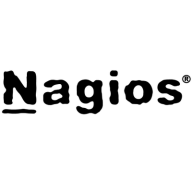

Nagios XI and Intermapper compete in the network monitoring category. Nagios XI has the upper hand in customization and alerting, while Intermapper excels in network visualization and mapping.
Features: Nagios XI offers extensive customization capabilities, robust alerting systems, and comprehensive network diagnostics. Intermapper provides real-time network mapping, visual representation of network status, and intuitive fault identification features.
Room for Improvement: Nagios XI could enhance its user interface, reduce the learning curve for new users, and streamline setup processes. Intermapper might benefit from expanding its customization options, integrating more advanced alerting features, and improving scalability for larger networks.
Ease of Deployment and Customer Service: Nagios XI provides flexibility in deployment with various add-ons but may require more technical expertise. Intermapper presents an easy deployment process with interactive customer support, facilitating user experience and onboarding.
Pricing and ROI: Nagios XI is a cost-effective solution, offering significant ROI through its feature set, although initial setup might require more effort. Intermapper could incur higher setup costs, but its visual clarity and user-friendliness provide quick ROI via efficient network management.

Fortra's software frees you up to focus on what matters most, aligning IT and business goals to help organizations build a competitive edge. Intermapper is network monitoring software for organizations who want to monitor their IT infrastructure in real time.
With Intermapper, you can visualize all your physical and virtual network components on a live map and get up-to-date performance data on its availability. Powerful and user-friendly, Intermapper helps leading businesses prevent costly outages and maximize uptime for 24/7 availability of network resources.
Features include flexible monitoring for anything with an IP address, free probes to monitor different types of equipment from various vendors, dynamic network mapping, bandwidth monitoring, real-time alerts, and remote access. Our add-on integration with Automate allows you to remediate network failures and conduct network self-healing.
Intermapper runs on Mac, Windows, and Linux.
Nagios XI provides monitoring of all mission-critical infrastructure components, including applications, services, operating systems, network protocols, systems metrics, and network infrastructure. Third-party add-ons provide tools for monitoring virtually all in-house and external applications, services, and systems.
Nagios XI uses a powerful Core 4 monitoring engine that provides users with the highest levels of server monitoring performance. This high degree of performance enables nearly limitless scalability and monitoring powers.
With Nagios XI, stakeholders can check up on their infrastructure status using the role-based web interface. Sophisticated dashboards enable access to monitoring information and third-party data. Administrators can easily set up permissions so users can only access the infrastructure they are authorized to view.
Nagios XI Benefits and Features
Some of the benefits and top features of using Nagios XI include:
Reviews from Real Users
Nagios XI stands out among its competitors for a number of reasons. Several major ones are its integration options and monitoring abilities, as well as its alerting features.
David P., a senior DevOps engineer at EML Payments Ltd, writes, “We use Nagios as a network discovery tool. We use Nagios to maintain our uptime statistics and to monitor our services. It has allowed us to be much more sophisticated in our monitoring and alerting.”
An IT-OSS manager at a comms service provider notes, “Nagios XI has a custom API feature, and we can expose custom APIs for our integration. This is a great feature.”
We monitor all Network Monitoring Software reviews to prevent fraudulent reviews and keep review quality high. We do not post reviews by company employees or direct competitors. We validate each review for authenticity via cross-reference with LinkedIn, and personal follow-up with the reviewer when necessary.